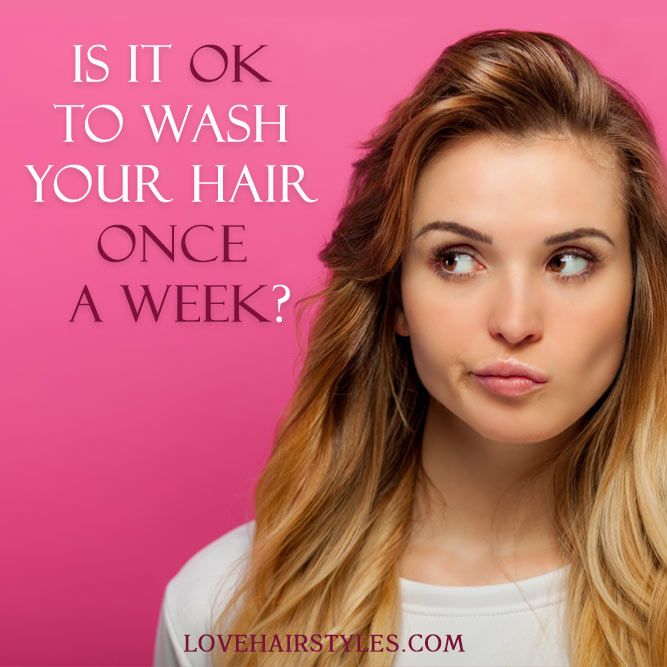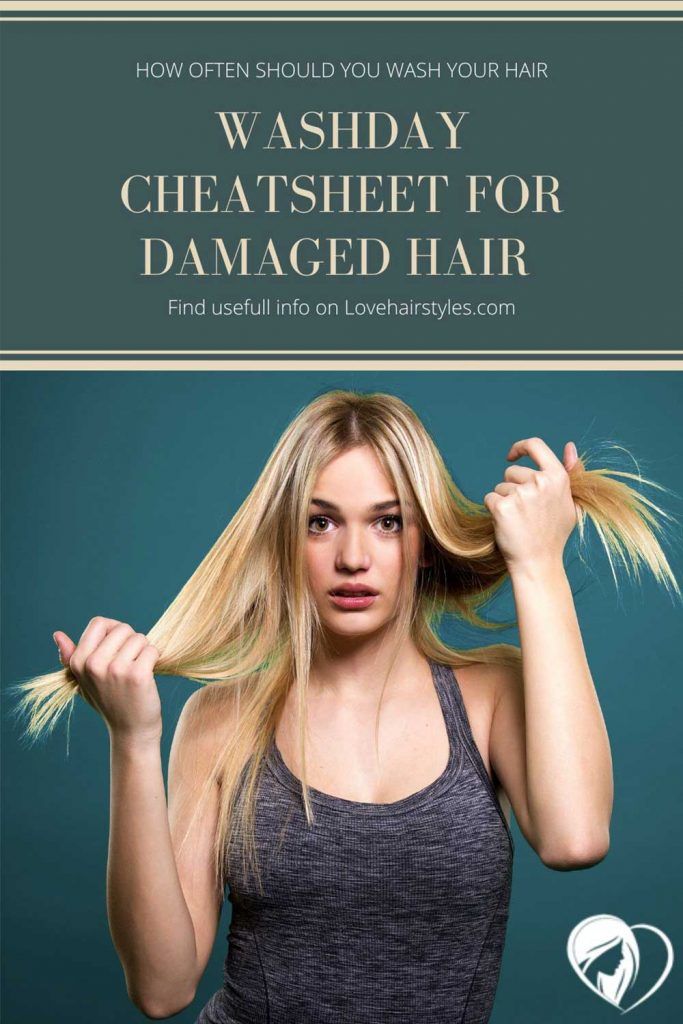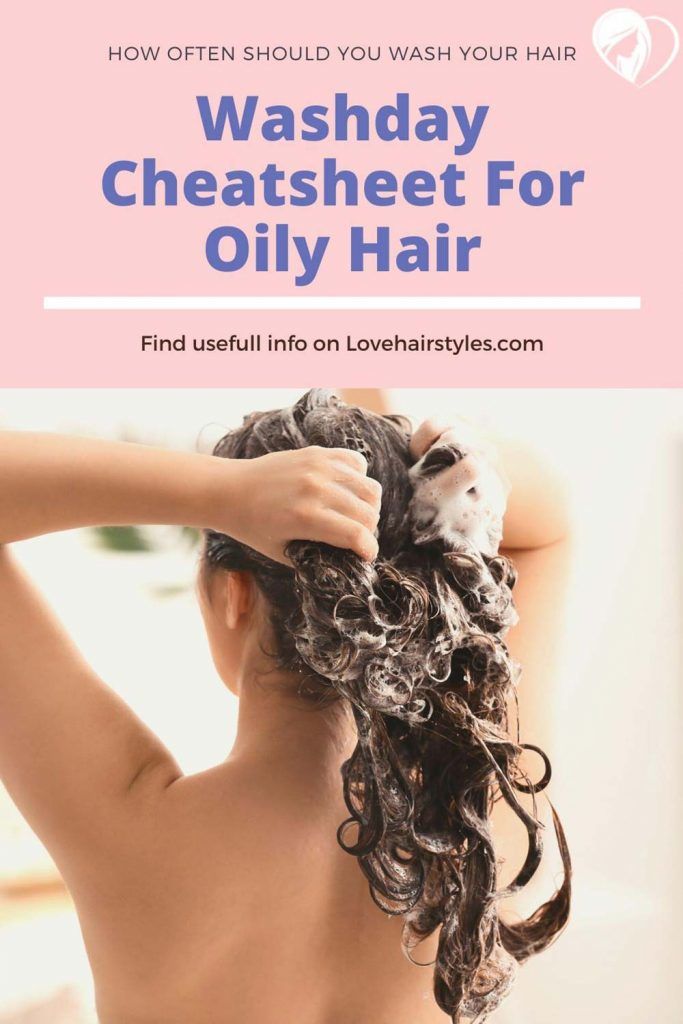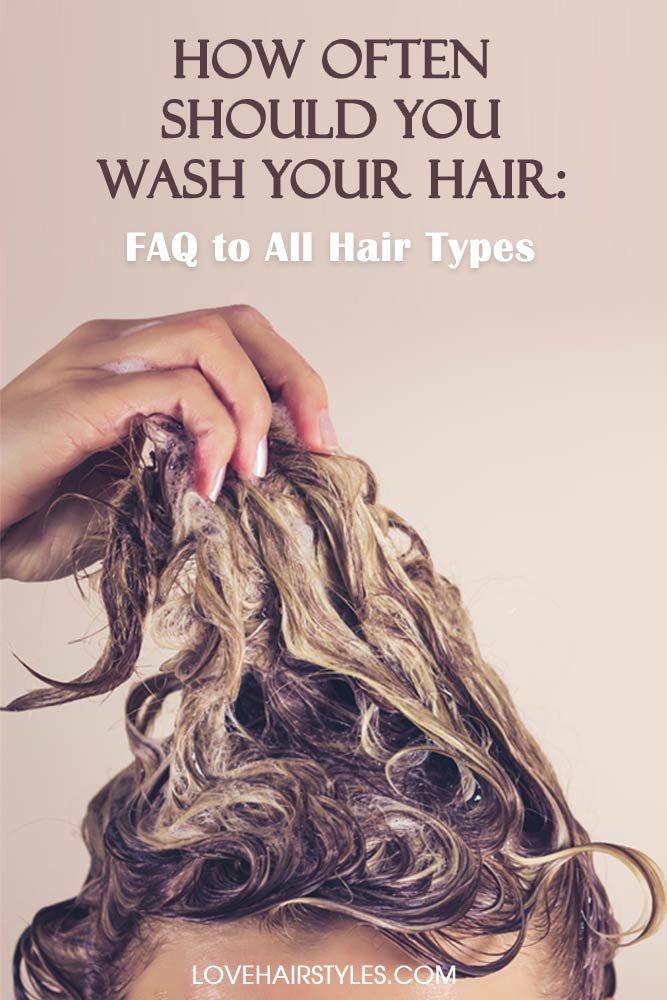Before you remember all the misconceptions about hair washing, let’s start with a little spoiler: you are the only one who really knows how often should you wash your hair. However, you should be aware of some crucial details to determine the frequency. Yes, there’s no universal rule for one simple reason - it’s all about your hair type, scalp, and the condition of your hair.
It’s hard to set the ideal hair-wash schedule. If you wash it too much, it dries out; and if you don’t wash it enough, it becomes lifeless. Hair washing is an individual matter, and, having consulted with the greatest experts, we’ve created this post to tell you what you should consider to finally mend fences with your shampoo.
Tips On How Often Should You Wash Your Hair, According To Your Hair Type
Hair types are not created equal, and every texture has a unique approach to its care routine. Of course, your hair type is one of the main determiners on how often you should wash your hair, and here, we’re breaking it down for all manes.
Flat, Fine Hair
As told by many dermatologists, fine hair produces more sebum than any other hair type, giving the hair a greasy look too soon. Therefore, they suggest women with this hair type wash the hair every or every other day. Note that you should use shampoos designed to fight dandruff, as they eliminate grease, thus adjusting the natural oil balance.
- Is it bad to wash your hair every day?- If your hair is fine and its sebum travels quickly down the hair shaft, washing your hair every day is the only way to keep up with the oil balance. But, make sure to use a shampoo specifically formulated to your hair type so as not to dry it out.
- Can washing your hair every day cause hair loss?- If you shampoo your hair with a qualitative mild cleanser, it won’t lead to hair loss.
Thick Hair
Thick hair is just the opposite of fine hair not only due to its density. In contrast to the latter, sebum in thick textures hits the hair shaft slower. That means frequent washing can strip off natural oils that keep the hair healthy and provide strength and elasticity. So, it’s better to wash your hair every two or three days. Still, you can get yourself a sulfate-free shampoo if you don’t want to wait that long.
- How do I start washing my hair less?- You can give your locks a quick rinse with water and soften it with a conditioner at the ends. It will keep your hair fresh and shiny between washes.
Wavy Hair Or Loose Curls
For wavy and slightly curly hair it’s very important to get the most of the sebum, which, unfortunately, travels slowly to the hair shaft. For that reason, washing every two or three days is the optimal frequency to achieve the ideal cycle of natural oils, according to the Curly Girl hair method. Also, don’t forget that your shampoo should match your hair pattern; otherwise, your cleanser may weigh down your locks.
- How many days can you go without washing your hair?- Even though it takes time for your sebum to get to the hair shaft, don’t keep your hair unwashed for more than three days. After the third day, your hair will produce too much sebum, which may cause dandruff.
Tightly Coiled Hair
Tight curls, ringlets, and kinks require washing once or twice a week. On these hair types, the oiliness is unnoticeable for a long time, as the oils take longer to travel down the thick texture. It also keeps coarse hair away from extra frizz and gives it a natural shiny look. On the flip side, going too long between washes causes too much oil, thus making the scalp prone to infections.
- Is it OK to wash your hair once a week?- Absolutely, if your hair is anything from 3a to 4c.
- Can I wash my hair daily with water only?- Many women with thick textures step away from shampoos and switch to the water-only routine due to the damaging composition of modern products. You can replace your cleanser with water, but keep in mind that it will take some time for your hair and scalp to adapt to a new regimen.
Damaged Hair
The state of your locks is a major factor that determines how often should you wash your hair. Damaged hair, for example, is a result of a deficiency of natural oil. In such cases, trichologists recommend washing lifeless locks twice a week to restore the balance.
- How can I thicken my hair?- A well-balanced washing routine, organic hair care products, less heat, and a healthy diet can help your hair recover from damage, making it stronger and thicker.
Oily Hair
If you struggle with oily hair, it’s essential to know how to wash your hair the right way. The truth is, it’s all about continuous trial and error. Dermatologists have proven that women whose scalps produce a lot of natural oil can train their hair. Instead of yielding to the temptation of washing your locks every day, you should try to start cleansing your hair every other day. In this way, there’s a possibility that your scalp will adapt to the new routine, adjusting the sebum circle based on in.
Overwashed oily hair can produce even more sebum, causing itchiness and dandruff.
Normal Hair
Normal hair is the perfect balance between oily and dry types. You can skip a couple of washing days and still have a nice-looking mane. Apart from that, this hair type is always elastic and shiny, which allows for various styling ideas.
- How many times a week should you wash your hair?- Since normal hair doesn’t have excess oils and is unlikely to get dry, the washing regimen is totally up to you.
Some Extra Pro Tip: How Often Should You Wash Your Hair Consider Your Lifestyle
Your hair becomes greasy not only because of the sebum produced by your scalp but also by sweat. If you live an active life full of workouts, you may want to wash your hair more often, no matter what texture you have. The same applies to people who live in highly polluted areas or use styling products too much.
If your lifestyle requires you to wash your hair more often but you’d like to find a workaround, you can try organic, sulfate-free dry shampoo between washes.
The Universal Formula
Although you can determine what hair type you have exactly, you may want to find the middle ground. Luckily for you, there’s an average recommendation to wash hair every 2-3 days. But, be ready for a commitment: your hair will need some time to get trained for it. On the other hand, getting deep into details regarding your hair type and scalp will give you the best results.
While you can find out how often you should wash your hair through practice, there’s a strong chance you will experience damage or hair loss. In fact, once you get to know your hair better, you will reveal its real potential, getting the most of your hair type. And today, you’ve learned all the basics of adjusting the washing routine for all hair types. Following our recommendations, you’re going to take your hair to a whole new level!
FAQ: How Often Should You Wash Your Hair
Is it OK to wash hair once a week?
The benefits of natural oils are brought into sharp focus when you wash your hair just once a week. There’s no need to use synthetic haircare products because weekly cleaning allows the natural oils to groom your hair. Using a texturizing spray might help keep your hair wavy all week long.
Is it better to wash your hair everyday or once a week?
There is no one-size-fits-all response to this question. Personal choice, daily activities and hair texture are all factors to consider. However, the US experts advise avoiding using shampoo too frequently. If you have oily hair, wash it 2-3 times per week, for example.
What happens if you don’t wash your hair for a month?
Long time without washing your hair can lead to buildup on the scalp, causing damage to the hair and potentially limiting its capacity to grow.It may be tempting to scratch if you have itchy dandruff or a scaly scalp. However, this may seriously harm your scalp and hair.
- Cleansing your hair doesn`t have to be complicated. Here s a cheat sheet on how to wash your hair. Source
- Whether you have fine hair, afro hair, or oily hair, this is your ultimate washing guide. Source
Was this article helpful?






















